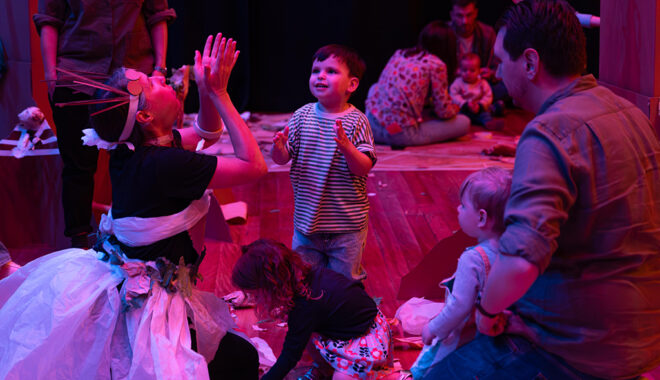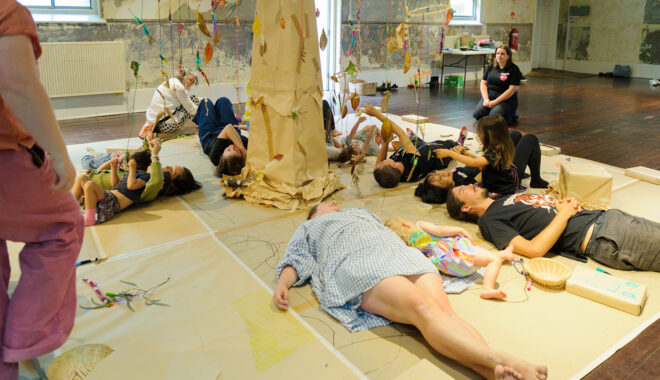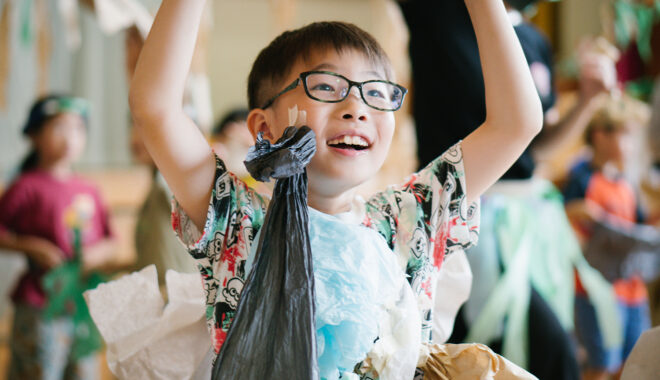11 Jun 2024 Sector & Advocacy
International Day of Play 2024
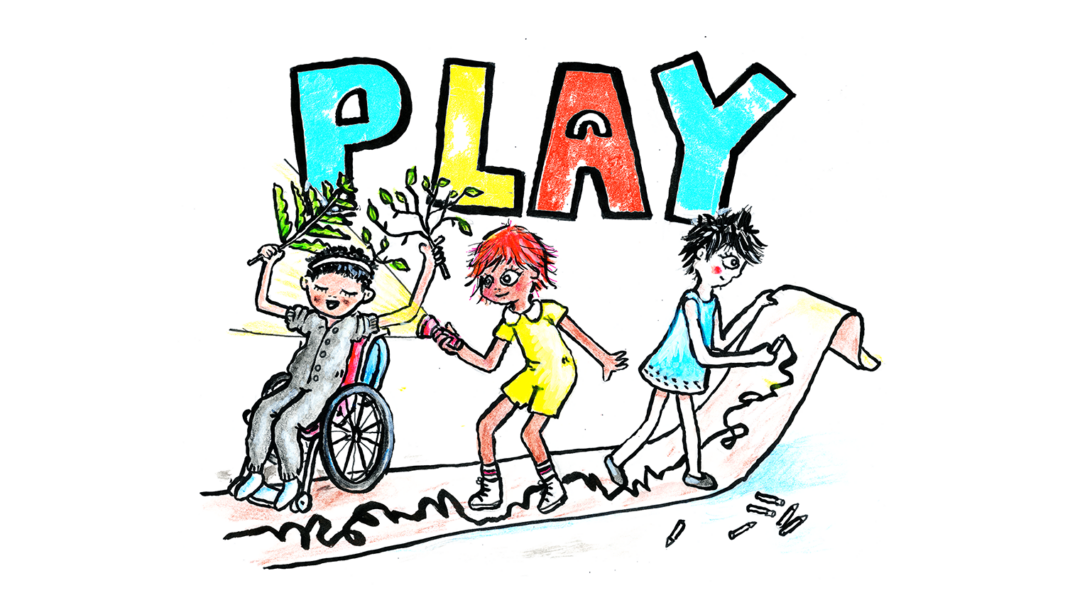
Reflections on Play by Tirese Ballard
The value of play has been documented as far back as prehistoric times, by philosophers of ancient Greece, and researched by many others thereafter. This, and Polyglot’s years of experience, tells us that play is integral to instilling a wealth of resources in children, to take into many areas of their lives and into adulthood, making confident and self-determined people. Play builds children’s bodies and motor skills; language and investigation; personality, drive, and will power; and interpersonal relationships and social maturity. Science outlines how play is generated by multiple parts of the brain activating the ‘imagination’; to conjure up possibilities, futures or alternative realities and is viewed as the flip side of memory. Stuart Brown, the founder of the National Institute of Play suggests play is everywhere and is operating at any moment from the smallest of interactions to the wider universe and is fundamental to evolution. Play is phenomenal!
Putting theory aside and thinking back to my play as a child, what comes to mind is what play ‘feels’ like. I remember a sense of alertness in my eyes and an energy and agility in my body and voice, and I see similar when observing children play now. I would describe my style of play as physical, visual and relational; and I am mindful of play styles when working with children in Polyglot’s immersive Play Spaces like Paper Planet.
In the paper forest there is opportunity to attune and be responsive to children’s natural aptitudes and different ways of playing. I often carry around a blank paper book I have made and children who enjoy visualising and verbalising narratives will sit down and turn the pages and play through making up stories. Whereas other children desire to work with their hands and build tangible objects that they can see and hold to play with. Some children need to become fully embodied in a paper costume to generate their play, and take on roles and characters, and move interactively around the whole forest.
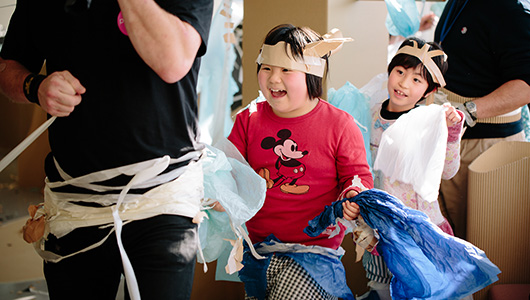
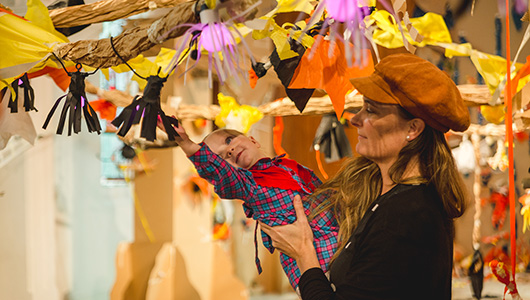
Paper Planet. Photographers: Ai Ueda (L), Theresa Harrison (R).
I love when play draws out qualities or aptitudes in children that they did not expect or yet know in themselves. The setting of Paper Planet and the roles we artists fulfill as ‘responders’ supports children to initiate and experiment, take risks and surprise themselves. We can see the child who is more confident with making and building, discover they can embody a character and be funny or endearing. Or I recall one small boy who reportedly, from his adults, had difficulty with sticking with a task, sit industriously scrunching up tiny pieces of yellow and black paper to make a whole swarm of bees. We see too, the adults of children reconnecting to their play modes and almost always loving the opportunity to remember their capacity to play and grow.
I have photos from my childhood that capture moments of exquisite play that have resourced me in the ways researchers and theorists suggest. But it is the visceral sensory memory of what play feels like in my body that is ever present, and ready to activate playfulness in me now as an adult.
So, this inaugural International Day of Play, may we remember that valuing and supporting children to play has great benefits for us all. Never let a day slip away without a moment of play.
International Day of Play was adopted by the United Nations General Assembly in March 2024, and is being celebrated for the very first time on Tuesday 11 June, 2024. Learn more here: internationaldayofplay.org



